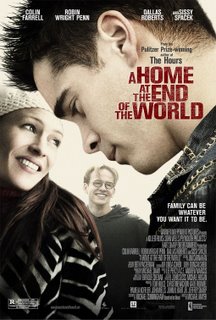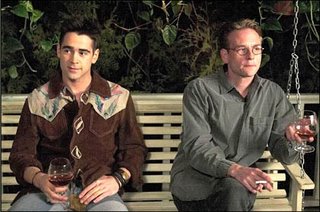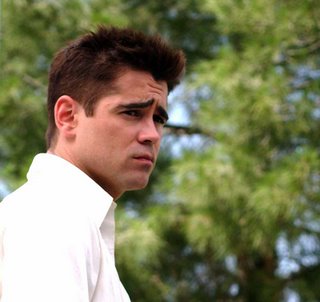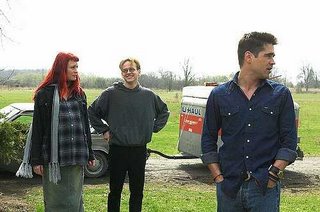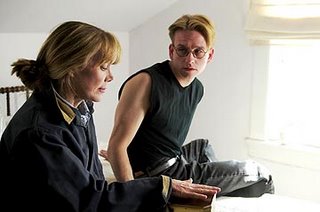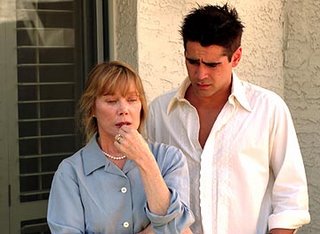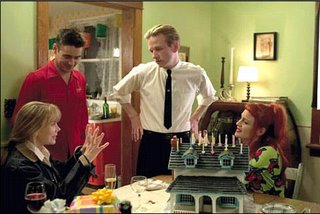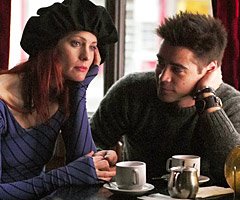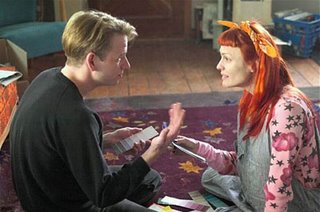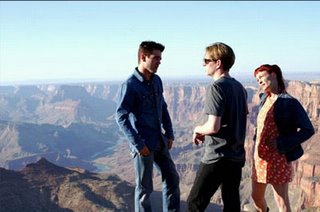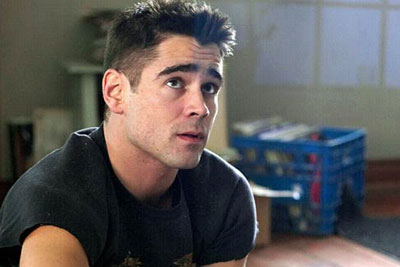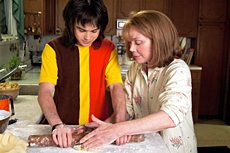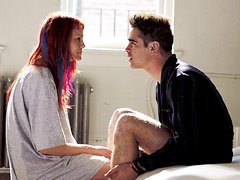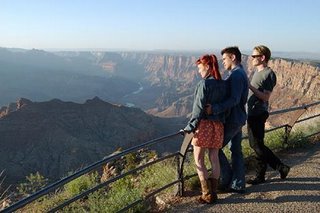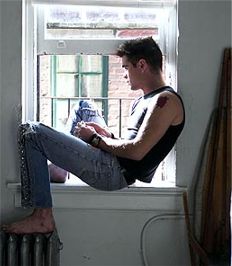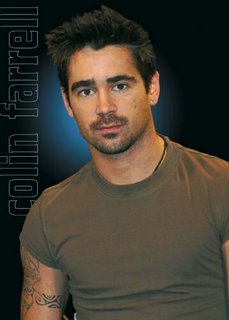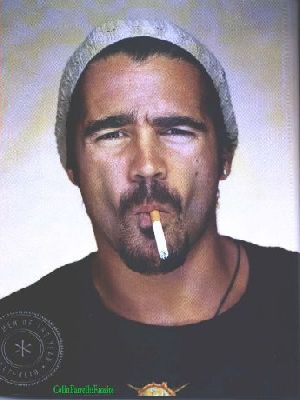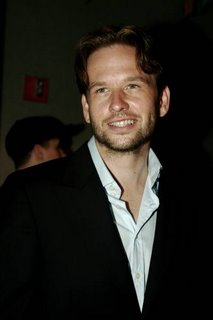Before Night Falls
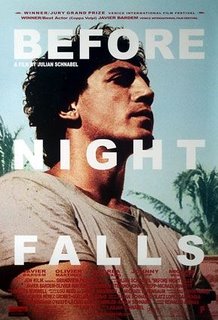
Before Night Falls
2002
"The story of Cuban poet-novelist Reinaldo Arenas"
Directed by: Julian Schnabel
Starring:
Javier Bardem - Reinaldo Arenas
Olivier Martinez - Lazaro Gomez Carriles
Andrea Di Stefano - Pepe Malas
Johnny Depp - Bon Bon/Lieutenant Victor
Michael Wincott - Herberto Zorrilla Ochoa
Olatz Lopez Garmendia - Reynaldo's Mother
Giovanni Florido - Young Reynaldo
Sean Penn - Cuco Snchez
Diego Luna - Carlos
Reinaldo Arenas biografia........
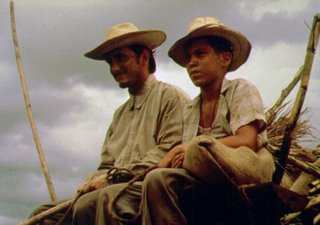 Based on the memoirs of gay Cuban poet Reinaldo Arenas Before Night Falls is a consummate study in how creativity flourishes under the most oppressive conditions. Oscar nominated Javier Bardem gives an amazing performance. We are shown the poets life from his childhood until his untimely death from AIDS at the age of 47. In-between he suffers discrimination and imprisonment under Castros regime; finally escaping to live out his life in New York City.
Based on the memoirs of gay Cuban poet Reinaldo Arenas Before Night Falls is a consummate study in how creativity flourishes under the most oppressive conditions. Oscar nominated Javier Bardem gives an amazing performance. We are shown the poets life from his childhood until his untimely death from AIDS at the age of 47. In-between he suffers discrimination and imprisonment under Castros regime; finally escaping to live out his life in New York City.Most of the movie he is an underground writer who, with the help of friends, smuggles his books to France where they are published. Incredibly poor as a child he is given help by wealthy people he meets who recognize his natural talent for writing.
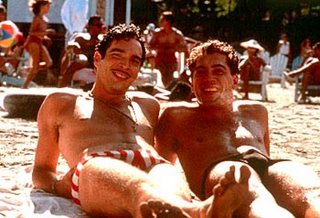
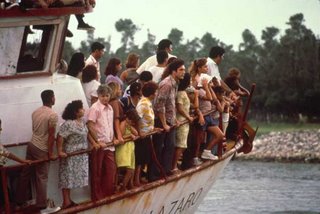
He gets a job in a library and becomes involved with the charismatic but disloyal Pepe. Later he is betrayed by Pepe and spends time behind bars. Nothing, however, stifles his desire to write. Like so many others before him, Oscar Wilde and The Marquis De Sade to name two, the time in jail only increases his determination to write.
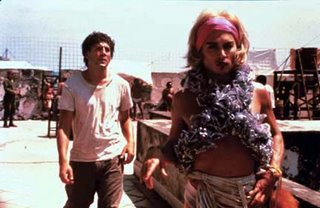
Beautifully filmed and appropriately poetic in style Before Night Falls manages to uplift through its tragic story of the human spirit prevailing over adversity. Javier Bardem never falls into the trap of showing Reinaldo as super human. He is simply a man with a mission, complete with fears and limitations but never short on hope and whimsy.
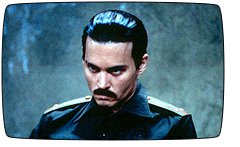 For the record he should have won the Oscar.
For the record he should have won the Oscar.Johnny Depp and Sean Penn both have small roles as men he meets on his journey. Still this is a one-man show from beginning to end and it is never boring. Bravo Javier!!!
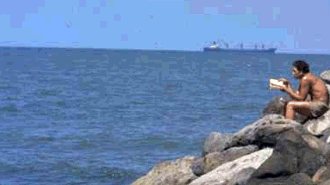 Javier Bardem does do a great job in the lead role, carrying the movie from beginning to end. However, the movie as a whole isnt as good as his performance. It runs long and could have been trimmed to allow the pace of the story to unfold quicker. There are too many scenes of life in Cuba that help with the atmosphere, but do little to help the plot.
Javier Bardem does do a great job in the lead role, carrying the movie from beginning to end. However, the movie as a whole isnt as good as his performance. It runs long and could have been trimmed to allow the pace of the story to unfold quicker. There are too many scenes of life in Cuba that help with the atmosphere, but do little to help the plot.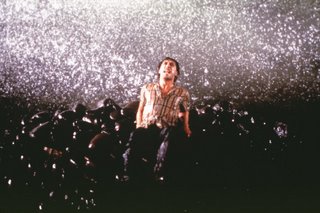 The greatest overriding emotion the movie carries is sadness. Reinaldo, while finding joy as a young man when he is just beginning to write and discover himself, endures imprisonment and tragedy throughout most of the rest of his life. Revered as an artist, he is never allowed to live a life of freedom or luxury. Even after his escape to America, his life is still one of poverty and deprivation.
The greatest overriding emotion the movie carries is sadness. Reinaldo, while finding joy as a young man when he is just beginning to write and discover himself, endures imprisonment and tragedy throughout most of the rest of his life. Revered as an artist, he is never allowed to live a life of freedom or luxury. Even after his escape to America, his life is still one of poverty and deprivation.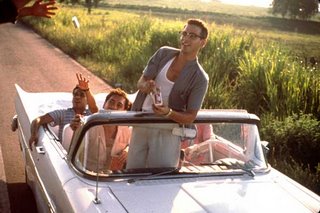 And the tragedy of his death so soon after finding the artistic freedom he so long sought is heart wrenching.
And the tragedy of his death so soon after finding the artistic freedom he so long sought is heart wrenching.As a character study of an artist and as an example of how oppressive societies can bring out the greatest works of art while trying to crush and control its people, Before Night Falls works. As an entertaining movie, it falls short.
Javier Bardem
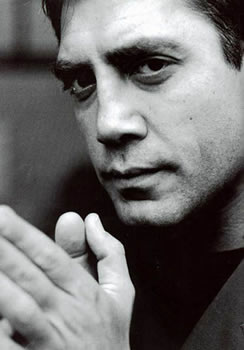 Javier Bardem is the son and grandson of actors, part of a long dynasty famous both in cinema and theatre. With 16 films to his credit, he has worked with the most important Span ish directors and will soon be seen in The Dancer Upstairs (Pasos de baile), the directorial debut of John Malkovich.
Javier Bardem is the son and grandson of actors, part of a long dynasty famous both in cinema and theatre. With 16 films to his credit, he has worked with the most important Span ish directors and will soon be seen in The Dancer Upstairs (Pasos de baile), the directorial debut of John Malkovich.He first achieved international success for his work in J'Amon, j'Amon (1992) by JJ Bigas Luna, receiving a Best Actor Award from the Spanish Actors Union, Fotogramas, and the Saint Jordi award. The following year, Bardem was presented a Special Award by the jury of the San Sebastian Film Festival. In 1994, he followed with the Fernando Rey Award and ones from the Spanish Actors Union, the Punta del Este Festival in Uruguay, and San Sebastian.
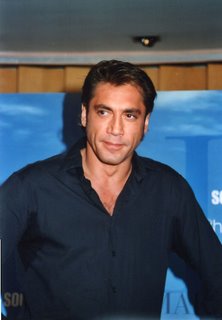 Bardem won his first Goya (Spanish Academy Award) in 1995 for best supporting actor for his performance in Imanol Uribe's Dias contados. A year later, he received the Best Actor Goya for Boca a boca (Mouth to Mouth), directed by Manuel Gbmez Pereira. In 1998 the Berlin Film Festival gave Bardem the Public's Award for Best European Actor, for his work in Perdita Duran go. He was also recognized by Fotogramas that same year for his performance in Live Flesh (Came tremula), which marked his second collaboration with Pedro Almoddvar, after 1991's High Heels (Tacones Lejanos). Bardem's performance in Live Flesh also earned him a third Goya nomination as well as the Audience Award for Best Actor at the European Film Awards. He won the Best Actor Award (the Volpi Cup) at the Venice Film Festival for his performance as Reinaldo Arenas in Before Night Falls.
Bardem won his first Goya (Spanish Academy Award) in 1995 for best supporting actor for his performance in Imanol Uribe's Dias contados. A year later, he received the Best Actor Goya for Boca a boca (Mouth to Mouth), directed by Manuel Gbmez Pereira. In 1998 the Berlin Film Festival gave Bardem the Public's Award for Best European Actor, for his work in Perdita Duran go. He was also recognized by Fotogramas that same year for his performance in Live Flesh (Came tremula), which marked his second collaboration with Pedro Almoddvar, after 1991's High Heels (Tacones Lejanos). Bardem's performance in Live Flesh also earned him a third Goya nomination as well as the Audience Award for Best Actor at the European Film Awards. He won the Best Actor Award (the Volpi Cup) at the Venice Film Festival for his performance as Reinaldo Arenas in Before Night Falls.Olivier Martinez
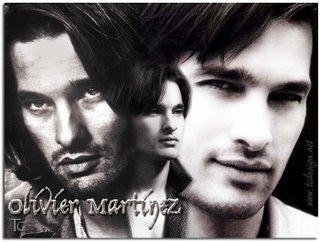 Biography
BiographyOlivier Martinez has been called the most promising French actor since Gérard Depardieu. His acting career came entirely by accident. After a series of dead-end jobs and with no foreseeable future, he accompanied a friend to an audition and was bitten by the acting bug.
After schooling at France's Conservatoire National Superieur d'Art Dramatique, Martinez leapt from theatre to television and then to films.
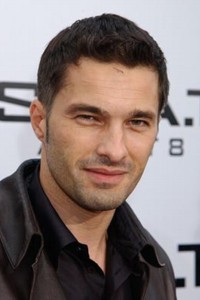 His first role was co-starring with Yves Montand in Jean-Jacques Beineix' IP5: L'île aux pachydermes (1992)
His first role was co-starring with Yves Montand in Jean-Jacques Beineix' IP5: L'île aux pachydermes (1992).Martinez won a César for his next film role in Bertrand Blier's 1993 drama 1, 2, 3, Soleil opposite Marcello Mastroianni.
His other acting credits include Jean-Paul Rappeneau's Horseman on the Roof, The (1995)} with [Juliette Binoche, Bertrand Blier's Mon Homme (1996), J. J. Bigas Luna's Chambermaid on the Titanic, The (1997), Eric Barbier's Toreros (2000) with Claude Brasseur and Mario Camus' The Town of the Proteges.
Andrea Di Stefano
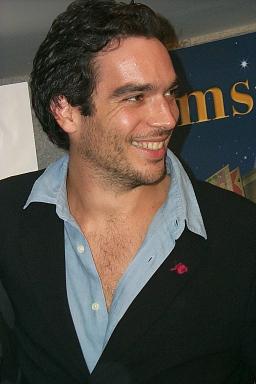 Date and place of birth: 15 Decembers 1972, Rome, Italy
Date and place of birth: 15 Decembers 1972, Rome, ItalyThe young has moved to New York in order to study to the Actor' s Study, the school where they are you form the best talents to you of the cinema American. For its optimal scenica presence and the magnetic look, Mark Bellocchio has it chosen com protagonist de the prince of Homburg.
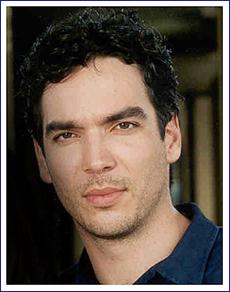 The ghost of the work has been then the time of Dario Argento for its. Therefore it has worked in Before that it is night, with to Javier Bardem, in the role of the friend of the Cuban writer Reinaldo Arenas. Before Angela (2002) it has recited in Almost Blue, dov' he was a policeman to the hunting of a dangerous omidica, and in Hotel of Mike Figgis. Its successive test to the cinema has been the dressed one from spouse.
The ghost of the work has been then the time of Dario Argento for its. Therefore it has worked in Before that it is night, with to Javier Bardem, in the role of the friend of the Cuban writer Reinaldo Arenas. Before Angela (2002) it has recited in Almost Blue, dov' he was a policeman to the hunting of a dangerous omidica, and in Hotel of Mike Figgis. Its successive test to the cinema has been the dressed one from spouse.Johnny Depp
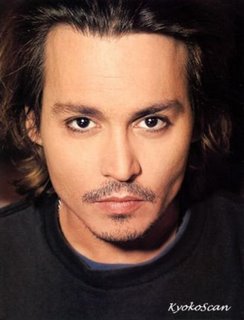 BIOGRAPHY
BIOGRAPHYBorn: 9 June 1963
Where: Owensboro, Kentucky, USA
Awards: 2 Oscar, 2 BAFTA and 5 Golden Globe nominations
Height: 5' 10"
 It's been a bizarre and bumpy road for Johnny Depp. He tried to be a rock star, only to see his band split. He moved into serious acting, only to have his credibility destroyed by accidentally becoming a teen pin-up. Then, defying his idol-status, he threw himself into the cinematic underground and slowly, slowly proved himself to be one of the most adventurous and genuinely bohemian actors of his generation.
It's been a bizarre and bumpy road for Johnny Depp. He tried to be a rock star, only to see his band split. He moved into serious acting, only to have his credibility destroyed by accidentally becoming a teen pin-up. Then, defying his idol-status, he threw himself into the cinematic underground and slowly, slowly proved himself to be one of the most adventurous and genuinely bohemian actors of his generation.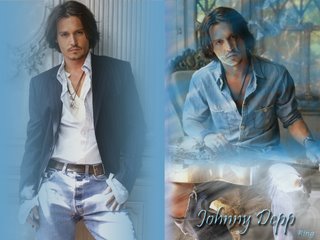 He was born John Christopher Depp II on June 9th, 1963, in Owensboro, Kentucky - the self-styled "barbecue capital of the world". His father, John Senior, was a city engineer, and his mother, Betty Sue, a waitress. He was always very close to his mother, but perhaps even closer to his grandfather, who he knew as Pawpaw (Depp himself was known as Dipp or Deppity Dawg). He'd visit Pawpaw often, and happily recalls sunny days picking tobacco together. It was a terrible shock to the seven-year-old boy when Pawpaw died.
He was born John Christopher Depp II on June 9th, 1963, in Owensboro, Kentucky - the self-styled "barbecue capital of the world". His father, John Senior, was a city engineer, and his mother, Betty Sue, a waitress. He was always very close to his mother, but perhaps even closer to his grandfather, who he knew as Pawpaw (Depp himself was known as Dipp or Deppity Dawg). He'd visit Pawpaw often, and happily recalls sunny days picking tobacco together. It was a terrible shock to the seven-year-old boy when Pawpaw died. Also traumatic was the family's move to Florida soon afterwards. John Senior did eventually find secure work as director of public works at Miramar, but the family spent a long time living in motels and were constantly shifting from place to place - well over a dozen in total. It was bad for the older kids - daughters Debbie and Christie (now Johnny's personal manager), and brother Danny (known as DP, now a screenwriter) - but Johnny took it especially hard.
Also traumatic was the family's move to Florida soon afterwards. John Senior did eventually find secure work as director of public works at Miramar, but the family spent a long time living in motels and were constantly shifting from place to place - well over a dozen in total. It was bad for the older kids - daughters Debbie and Christie (now Johnny's personal manager), and brother Danny (known as DP, now a screenwriter) - but Johnny took it especially hard. Though an inquisitive child - at 8 he was hugely interested in Evel Knievel and World War 2 - he did not take to school and went off the rails, once being suspended for mooning the gym teacher. By 12, he was smoking, very soon came drinking, and drugs. There was petty theft and vandalism, he lost his virginity at 13. Small wonder he got into rock and roll.
Though an inquisitive child - at 8 he was hugely interested in Evel Knievel and World War 2 - he did not take to school and went off the rails, once being suspended for mooning the gym teacher. By 12, he was smoking, very soon came drinking, and drugs. There was petty theft and vandalism, he lost his virginity at 13. Small wonder he got into rock and roll.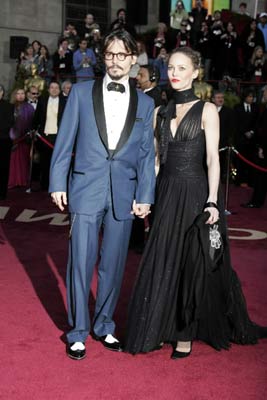 Johnny first discovered a love of music back in Owensboro, when attending the church of his uncle, a fundamentalist minister. His uncle would preach, the people would clutch his feet and be redeemed, but Johnny was more taken by the gospel music. In Florida, as this troubled adolescent became a surly teenager, he received a guitar from his mother and, like millions before him, retired to his room and taught himself to play.
Johnny first discovered a love of music back in Owensboro, when attending the church of his uncle, a fundamentalist minister. His uncle would preach, the people would clutch his feet and be redeemed, but Johnny was more taken by the gospel music. In Florida, as this troubled adolescent became a surly teenager, he received a guitar from his mother and, like millions before him, retired to his room and taught himself to play.











